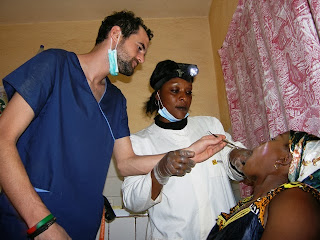eHealth
runs the risk of getting caught up in a circle that
doesn’t become anything tangible for the medic or the patient. The private sector is taking the wheel
and blazing the trail for the public sector to follow if it chooses to.
Much is talked about regarding what eHealth encompasses, but not much is talked about regarding its benefits. Is it still not tangible for many people and direct beneficiaries of the application of technology to health? What needs to happen for the Public Administration and the private sector to take advantage of these opportunities?
The European Commission showed through a report last year that it had been betting on eHealth, while the World Health Organization (WHO), that had already been busy the past few months, showed interest in setting up eHealth worldwide, although plans are still certainly very far away.
For example, in Spain, the situation is not as defined in the public sector; it is more focused right now on social wars to notice the revolution that is occurring in the technology of healthcare right now. However, the war has only been going on for a few years so there are still four clearly defined groups for eHealth:
1. Potential users: anyone who might benefit from health services.
2. Patients: those who are currently utilizing eHealth, including associations of patients, etc.
3. Professionals: trained professionals who provide health services.
4. Health organizations: hospitals, public administrations, etc.
Undeniably, four open fronts to improve the
quality of healthcare in our country would be central in the implementation of technology
in health, each
as beneficiaries of a new triangle of communication. The three components of
the triangle would be: patients/users (both current and potential), professionals (doctors, nurses, etc.),
and health
organizations.
At this point, how would the theoretical triangle work in practice? Could health services work with patients as an alternative?
eHealth is leading a constant, virtually optimized, connectived, and efficient realm in which it is not necessary for the four aforementioned groups to operate in a physical space—something that has never happened until now. Given that these groups can operate independently in their own spaces, while maintaining optimal communication, the relationship between patient, doctor, and institution is improving and resulting in satisfaction for all parties involved. Thus, is it safe to say we have a real opportunity?


